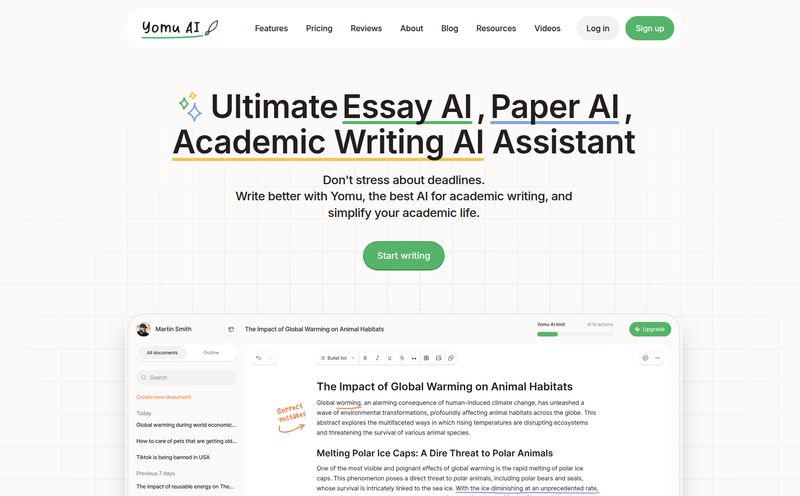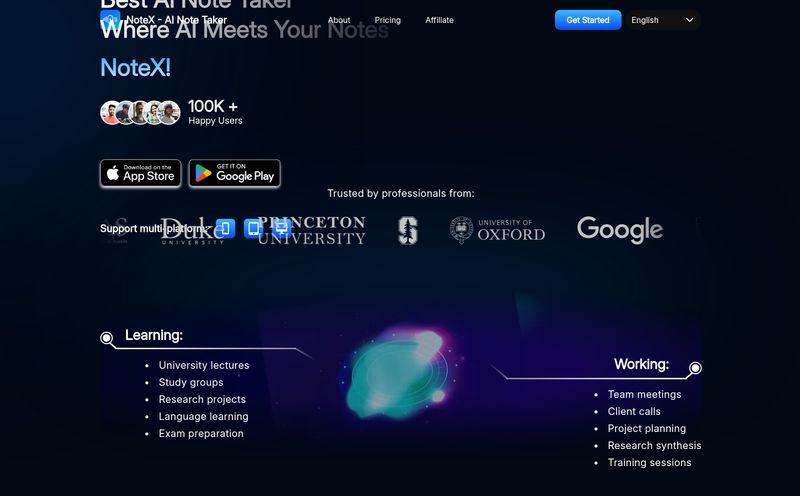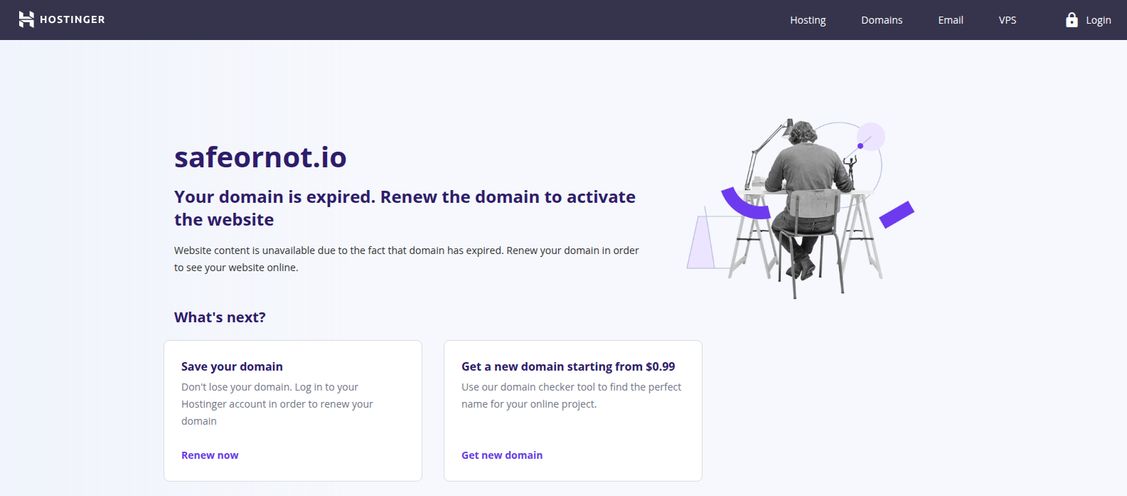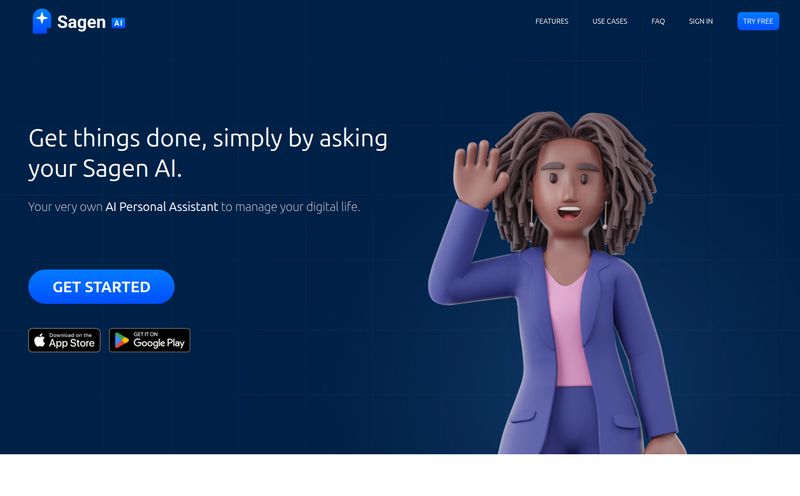I still get flashbacks to my university days. You know the scene: a mountain of textbooks, a blinking cursor on a blank page, and the kind of existential dread that only a 10,000-word dissertation due in 48 hours can inspire. The fuel? Stale coffee and pure panic. Back then, my most advanced tool was a spell checker and maybe a clunky online thesaurus. Oh, how times have changed.
Today's students are navigating a totally different world. A world filled with AI. And while a lot of the talk is about ChatGPT writing your entire essay (please, don’t do that), the more interesting conversation is about tools that can actually help you learn better. That’s where platforms like Desklib come in, promising to be an AI-powered academic sidekick. But does it live up to the hype? I decided to pop the hood and take a look.
So, What on Earth is Desklib?
Let's cut through the marketing jargon. Desklib bills itself as an 'AI-powered academic toolkit'. In plain English, it's a website loaded with a bunch of different tools designed to help students with their work. Think of it less as a single-purpose gadget and more like a digital Swiss Army knife for your studies. It’s got a little something for almost every academic headache, from checking your grammar to debugging your first coding project.
It’s built for both the student drowning in assignments and the educator trying to streamline their workflow. The whole idea is to have one central hub instead of a dozen different tabs open for a plagiarism checker, a paraphraser, a grammar tool, and so on. A noble goal, for sure.

Visit Desklib
A Closer Look at the Desklib Toolkit
Okay, so it's a toolkit. But what are the actual tools? This is where it gets interesting. It's not just one thing, but a whole suite of features. I've seen a lot of these platforms, and honestly, many are just a fancy wrapper around a single API. Desklib seems to have put a bit more thought into it.
More Than Just a Plagiarism Checker
Every student knows the fear of the plagiarism checker. Desklib has one, of course. It’s table stakes these days. But it also has an AI Detector. This is a fascinating addition, given the current academic climate. We're in the middle of an AI arms race—universities running to detect AI-written text, and students… well, students being students. Having a tool to check if your own writing accidentally flags as AI-generated is genuinely useful. It helps you understand how these detectors 'think' and ensures your original work doesn't get you a stern email from your professor.
Your Personal AI Tutor and Grader
This is the part that really caught my eye. The suite includes an AI Grader, an AI Quiz generator, and an AI Answers feature. The Grader is like having a brutally honest TA on call 24/7. You feed it your assignment, and it gives you feedback on where you can improve. The AI Quiz tool can turn your study notes into a practice test, which is brilliant for active recall. And the AI Answers feature is there for when you're truly stuck on a concept at 2 AM. It's a fine line to walk—you want a guide, not a cheat sheet, and I think Desklib positions these tools as guides. Which is the right move.
Tools for the Modern Writer and Coder
The AI Paraphraser is bound to be popular. Look, we all get stuck trying to rephrase a sentence for the tenth time. A tool like this can help you break out of a rut and find a new way to express an idea. The key, as with all things AI, is to use it as a brainstorming partner, not a ghostwriter. They also have an AI Code Checker, which is a fantastic addition for STEM students. Debugging code is a special kind of pain, and having an AI that can spot errors or suggest optimizations is a massive time-saver.
The Library of Alexandria, but Digital
Finally, there’s the Study Documents feature. This is essentially a massive, user-generated library of notes, past exams, and assignment examples. Before you use it, check your university's academic integrity policy. But as a source for seeing how others have tackled a topic, it can be a goldmine of information. Its a great way to get perspective outside your own lecture notes.
Let's Talk About the Price Tag
Alright, the big question. What’s this going to cost? I was pleasantly surprised here. There’s a genuinely useful free plan. So many 'free trials' are so restrictive they're useless, but Desklib gives you access to the essential tools without asking for a credit card. I appreciate that.
For those who need more power, the paid plans are pretty reasonable, especially for a student budget. Here’s a quick breakdown:
| Plan | Price | Key Feature |
|---|---|---|
| Free | $0 / month | Essential AI-powered study tools |
| Study Suite (120) | $4.50 / month | Unlocks 120 Study Documents |
| Study Suite (240) | $9.00 / month | Unlocks 240 Study Documents |
Prices are accurate at the time of writing, but you should always check their official pricing page for the latest info.
For less than the price of a couple of fancy coffees, you get access to the full document library. For a student deep in research mode, that could be a very worthwhile investment.
The Good, The Bad, and The AI-Generated
No tool is perfect. Let's get real about the pros and cons.
On the upside, the sheer breadth of tools in one place is fantastic. It's affordable, and the 24/7 accessibility is a lifesaver for night-owl studiers. I also love that it's designed with both students and educators in mind, which fosters a better educational ecosystem.
However, you need to be realistic. The effectiveness of any AI tool—and I mean any of them—depends entirely on the quality of what you put in. Garbage in, garbage out. The AI Grader can't read your mind to know what you were trying to argue. Also, and this is crucial, no AI detection tool is 100% accurate. They are getting better, but they can still produce false positives or negatives. Use them as a guide, not as an infallible judge.
My Final, Honest Take
So, is Desklib worth your time? In my opinion, yes. Especially with the free tier available.
I think the biggest mistake students can make is seeing AI as a shortcut to avoid work. That's a losing game. The smart play is to use AI as a force multiplier for your own efforts. Use it to check your work, to challenge your understanding with quizzes, to find new sources, and to break through writer's block. Used that way, a platform like Desklib isn’t a crutch; it's a stepping stool. It helps you reach a little higher.
It won't write your thesis for you (and it shouldn't!), but it might just be the AI study buddy that helps you survive the process with your sanity—and your grades—intact.
Frequently Asked Questions about Desklib
- Is Desklib actually free to use?
- Yes, there is a free plan that provides access to the essential AI study tools. For more advanced features, like unlocking a large number of study documents, you would need to subscribe to one of their affordable paid plans.
- How accurate is the Desklib AI Detector?
- Like all AI detection tools on the market, it's not 100% infallible. It's a powerful guide to see how your text might be perceived by institutional checkers like Turnitin, but it should be used for informational purposes. It’s always best to ensure your work is original.
- Can educators and teachers use Desklib?
- Absolutely. The platform is designed for both learners and educators. Teachers can use the tools to create quizzes, check assignments for plagiarism, and streamline their grading process, giving them more time to focus on teaching.
- What kind of study documents can I find on Desklib?
- The library contains a wide variety of user-uploaded content, including class notes, study guides, past exam papers, and project examples across many different subjects and universities. It’s a great resource for seeing different perspectives on a topic.
- Is using a tool like Desklib considered cheating?
- This is a great question. Using tools like the AI Grader, Plagiarism Checker, or AI Quiz generator to improve your own work is generally considered a smart study practice. However, using the AI Paraphraser to pass off someone else's ideas as your own or submitting answers from the Study Documents library as your original work would likely violate academic integrity policies. Always use these tools as a supplement to your own learning, not a substitute.
Reference and Sources
- Desklib Official Pricing Page - For the most current subscription information.
- How AI Is Being Used in Education - A broader look at the role of AI in learning environments from Edutopia.



